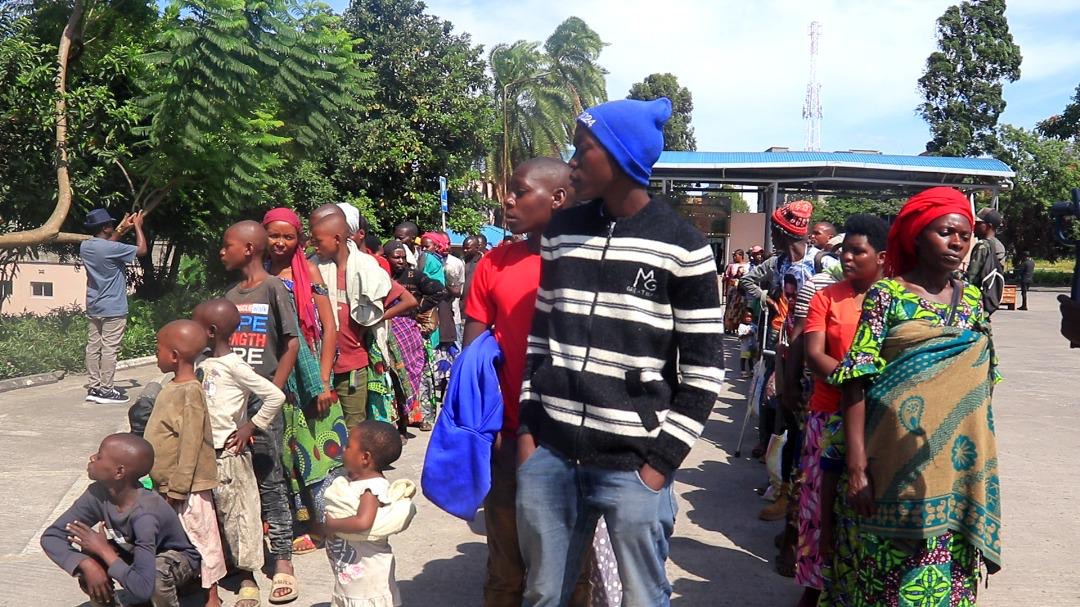DRC : Rwandan refugees repatriated after years of captivity by the FDLR

SOS Médias Burundi
Goma, May 18, 2025 – A group of 360 Rwandans was repatriated on Saturday to their country of origin after spending several years in captivity under the control of the Democratic Forces for the Liberation of Rwanda (FDLR) in the Democratic Republic of Congo. This humanitarian operation was carried out with the support of the United Nations High Commissioner for Refugees (UNHCR), which aims to facilitate the return of more than 2,000 people as part of this process.
The Hutu genocidaires—the FDLR—are an armed group at the heart of regional tensions.
Active in several eastern Congolese territories, the FDLR is largely composed of former Rwandan soldiers and militiamen involved in the 1994 genocide against the Tutsi in Rwanda. They have long used Congolese provinces of North and South Kivu as a rear base, taking advantage of chronic insecurity to maintain their presence.
Their presence continues to fuel diplomatic tensions between Kinshasa and Kigali. Rwanda accuses the DRC of supporting and arming the FDLR, while Congolese President Félix Tshisekedi describes them as a « residual force composed of bandits, » asserting that they no longer pose a real threat to Kigali.
For its part, Kinshasa accuses Rwanda of actively supporting the M23, a rebel movement composed mainly of Congolese Tutsis, and of sending troops onto the Congolese soil. Since January 2025, the M23 has controlled the capitals of the strategic provinces of North and South Kivu, exacerbating the security crisis.
Stories of suffering and hope
At the Goma border, several returnees told SOS Médias Burundi about their daily lives in captivity. « We lived in constant fear. They prevented us from reaching areas controlled by the Congolese army or NGOs, » confided Josiane, a mother of three. She says she spent nine years in the bush under the control of the FDLR.
Jean-Paul, 27 years old, expresses his joy at finally returning to his homeland : « I was only two years old when my parents were kidnapped. Today, I’m returning to Rwanda for the first time with the feeling of being free. »
Another woman, Alphonsine, explains that many returnees have no identity documents : « We were born and raised in the forest. For us, Rwanda is an idea, not a reality. We need help to rebuild.
A return that raises questions
While this repatriation is presented as a major humanitarian advance, it nevertheless raises questions. How can we ensure the accurate identification of these returnees? What is the real capacity of the Congolese authorities to neutralize foreign armed groups like the FDLR? And how can we establish lasting peace in a region plagued by both internal and cross-border conflicts?
For many observers, the answer can only be political, requiring frank dialogue between the DRC, Rwanda, and international actors to break the cycle of violence in this part of the African Great Lakes.
——
Former refugees taken hostage by the FDLR, according to their account, return to Rwanda via the border between Goma and Gisenyi, May 17, 2025 (SOS Médias Burundi)

